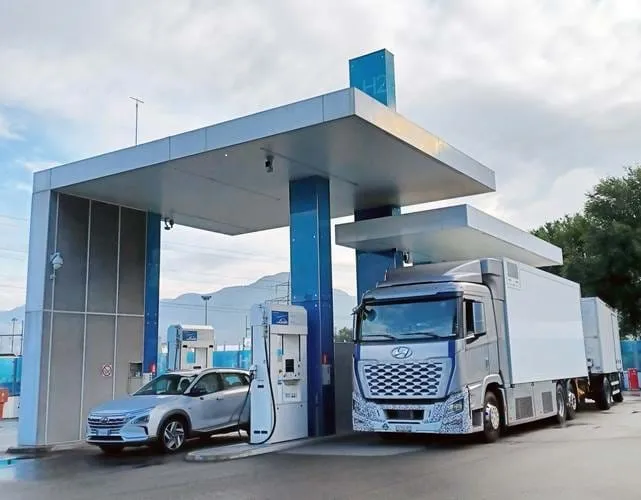Swedish payment solutions provider Seamless and Q-Park, the country’s private car park operator are to partner on a project that will enable motorists to pay for parking via SEQR using their mobile phone. Customers simply use the SEQR app in the phone to scan a QR code, and then approve the transaction by entering their PIN. A customer paying for parking with SEQR can also extend the parking time directly from their mobile without needing to return to the car park. The customer receives an immediate digita
April 26, 2013
Read time: 2 mins
Swedish payment solutions provider Seamless and 182 q-park, the country’s private car park operator are to partner on a project that will enable motorists to pay for parking via SEQR using their mobile phone.
Customers simply use the SEQR app in the phone to scan a QR code, and then approve the transaction by entering their PIN. A customer paying for parking with SEQR can also extend the parking time directly from their mobile without needing to return to the car park. The customer receives an immediate digital receipt by phone, followed by an invoice at the end of the month.
As a major provider of payment solutions for mobile phones Seamless handles more than 3.1 billion transactions each year via 525,000 active sales outlets, while Q-Park is responsible for approximately 300,000 parking spaces. Its services range from individual parking services, with rental of parking spaces and parking surveillance, to overall responsibility for entire parking facilities.
“Enabling people to pay for parking with SEQR is an important step in our work to make mobile payments a natural part of everyday life. The collaboration with Q-Park is also proof that our solution is extremely easy to use in almost any payment situation, from physical stores and public transport to e-commerce and parking,” says Peter Fredell, president and CEO of Seamless.
“We see growing interest from customers to pay for parking with their mobiles. For us, it has been very important to find a solution that meets our basic requirements for mobile payments. The system must be simple to use and not entail any extra costs for our customers. After evaluating the solutions currently available, we’re very pleased to begin collaboration with SEQR. We feel the system can make payment more convenient and easier for our customers,” says Peder Ståhlberg, CEO of Q-Park.
Customers simply use the SEQR app in the phone to scan a QR code, and then approve the transaction by entering their PIN. A customer paying for parking with SEQR can also extend the parking time directly from their mobile without needing to return to the car park. The customer receives an immediate digital receipt by phone, followed by an invoice at the end of the month.
As a major provider of payment solutions for mobile phones Seamless handles more than 3.1 billion transactions each year via 525,000 active sales outlets, while Q-Park is responsible for approximately 300,000 parking spaces. Its services range from individual parking services, with rental of parking spaces and parking surveillance, to overall responsibility for entire parking facilities.
“Enabling people to pay for parking with SEQR is an important step in our work to make mobile payments a natural part of everyday life. The collaboration with Q-Park is also proof that our solution is extremely easy to use in almost any payment situation, from physical stores and public transport to e-commerce and parking,” says Peter Fredell, president and CEO of Seamless.
“We see growing interest from customers to pay for parking with their mobiles. For us, it has been very important to find a solution that meets our basic requirements for mobile payments. The system must be simple to use and not entail any extra costs for our customers. After evaluating the solutions currently available, we’re very pleased to begin collaboration with SEQR. We feel the system can make payment more convenient and easier for our customers,” says Peder Ståhlberg, CEO of Q-Park.








